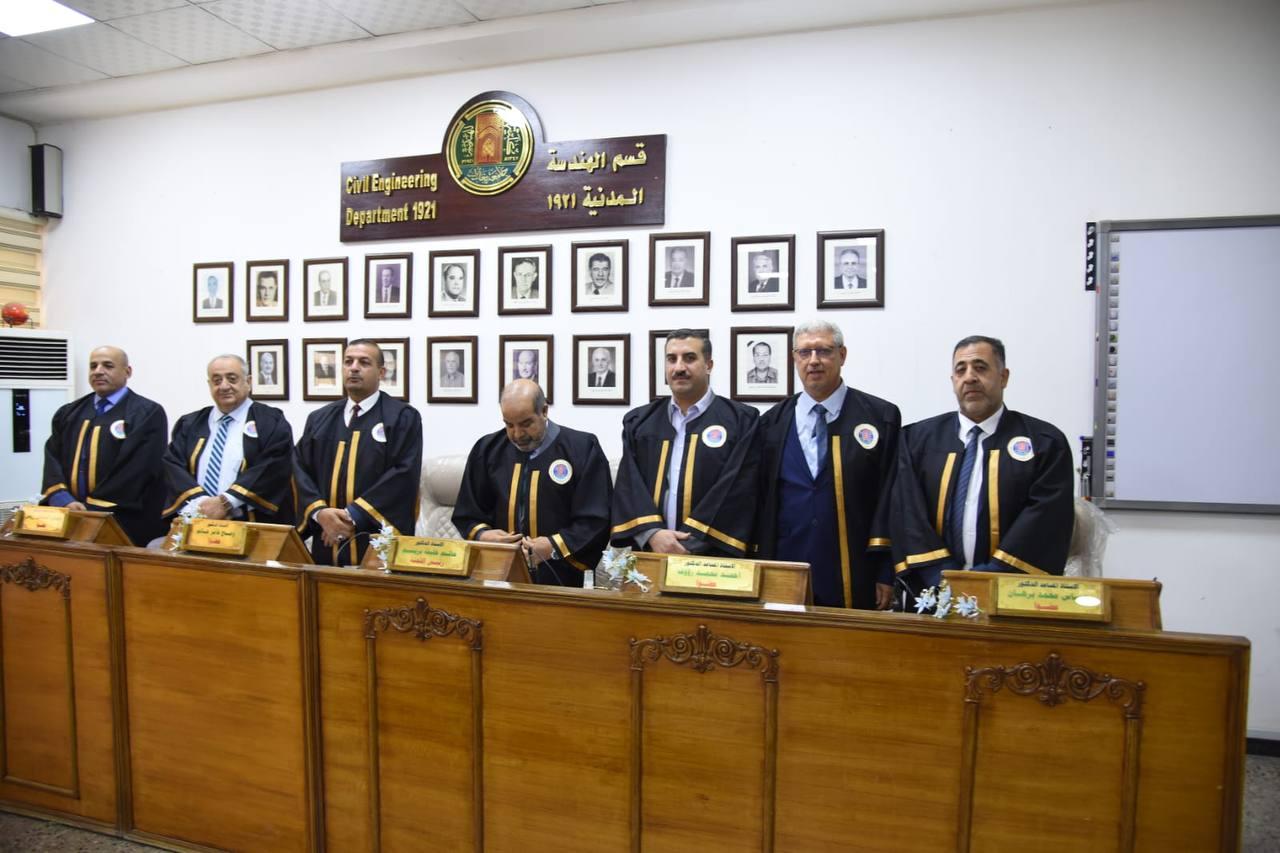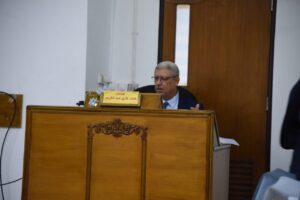The Civil Engineering Department at the College of Engineering, University of Baghdad, held Ph. D thesis examination titled:
(Adaptive program management approach for are reconstruction)
By Haider KHazi Abdulkareem , the examination committee was consisting of:
Prof.Dr.Hatem KHalifa Breesam Chairman
Prof. Dr. Wadah Amer Hatem Member
Asist.prof.Dr.Sedqi Ismael Member
Asist.prof.Dr.Abbas mohammed Burhan Member
Asist.prof.Dr.Ahmed Raouf Member
Prof. Dr.KHadum Raheem Razeej supervisor
After conducting the public discussion and listening to the student’s defense, the thesis was accepted with an excellent degree. was summarized as follows:
Adaptive program management is a flexible and iterative approach to managing multiple projects that emphasizes the ability to respond to changes and uncertainty. Therefore, adaptation could be classified as proactive and interactive.
Proactive adaptation is related to iterative tasks during the program lifecycle implementing “the obstacles removal strategy” before starting the project, which leads to more management resiliency. While the interactive adaptation is related to iterative tasks during the project lifecycle implementing “the obstacles avoidance strategy” is particularly adopted to complex projects that involve multiple stakeholders and requires frequent adjustment to scope, timeline, and resources.
In the context of area reconstruction, adaptive program management can be used to manage projects that involve rebuilding or rehabilitation of a specific area which might lead to a positive impact to neighboring city or region. This commonly include projects related to infrastructure, housing, economic development, and other related sectors.
The proposed model in this study is an integrated model based on six concepts (program management, adaptation (proactive and interactive), community participation, delivery system, communication management model, and decision support tools based on Analytic Hierarchy Process (AHP) and its extensions).
The reconstruction process taking place currently in Ninawa Governorate was selected to be the case study for this research, the study includes preparing a program work breakdown structure (WBS) template for classifying the work phases.
The proposed five-year funding plan based on the damage assessment report showed that the current reconstruction efforts and fund does not represent any significant value to the required fund which reflects a budget deficit to the whole reconstruction plan.
To facilitate the reconstruction program management, the study includes building a software using MS Visual Basic dot net to enable the program management team to adjust the plan to respond to different circumstances to readjust priorities in complex projects, like area reconstruction, in addition to continuous learning on work information and process improvements.
Finally, using the adaptive program management approach can support big organizations to effectively manage the complexity and uncertainty of area reconstruction projects to achieve the planned goals and deliver successful outcomes.









